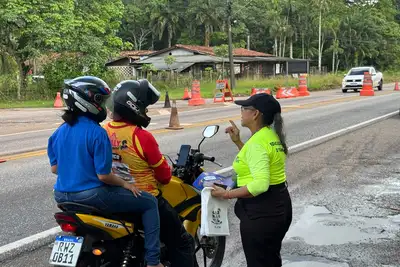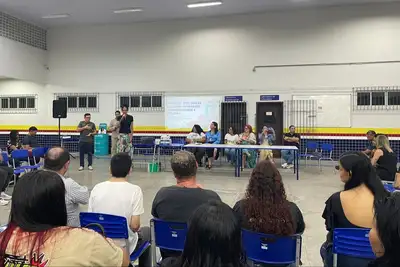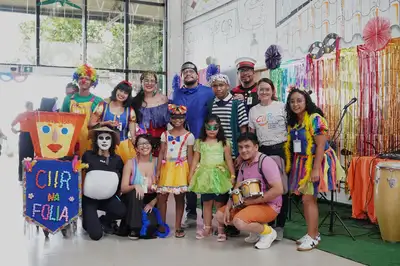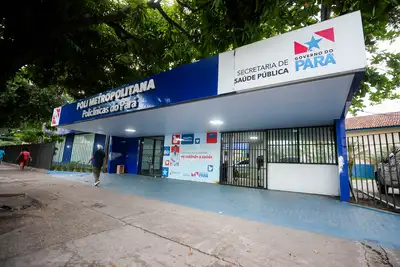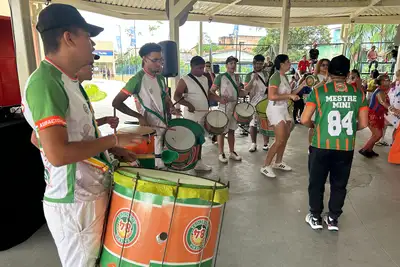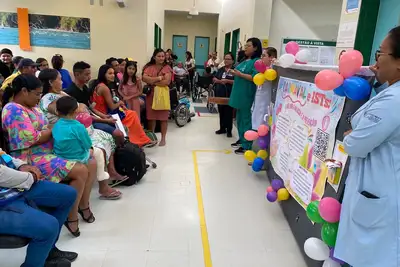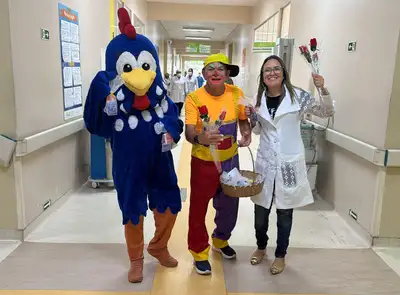State Bioeconomy Plan benefits over 400 thousand families in Pará
Pioneering policy of the State government boosts sustainable production chains, generates income, and inspires a national model to be presented at COP30

Pioneering in the development of an initiative that foresees nature-based solutions to transform the economy, the government of Pará has already benefited over 2,300 businesses through the State Bioeconomy Plan (PlanBio), launched three years ago. Approximately R$ 9 billion have been mobilized in 13 production chains, representing 3.8% of the State's GDP. The actions of the plan have already impacted over 400 thousand families across all regions of Pará, with investments reaching nearly R$ 1 billion.
“The PlanBio of Pará has established itself as one of the main public policies for transitioning to a new development model in the Amazon, mobilizing the community around a single purpose: generating value from standing forests. We have productive chains being strengthened, new arrangements for sustainable businesses emerging, and a Bioeconomy and Innovation Park of the Amazon that drives and has the mission of scaling all of this. Pará is capable of leading a new economic paradigm that combines environmental conservation, social inclusion, and responsible growth,” emphasizes the Deputy Secretary of Bioeconomy of the State Secretariat for Environment, Climate and Sustainability (Semas), Camille Bemerguy.
The PlanBio of Pará served as a basis and inspiration for the creation of the National Development Plan for Bioeconomy, which will be launched during the 30th United Nations Climate Change Conference (COP30). The policy of tax incentives for bio-businesses is one of the government’s strategies to stimulate the development of Pará's bioeconomy, through the generation of green jobs, income improvement, and strengthening a more sustainable and inclusive economy.

Transformative Businesses – Entrepreneur Juliana Monteiro, founder of JuCarepa, is one of the beneficiaries of PlanBio. The company works with inputs from socio-bioeconomics, especially cumaru, and collaborates with extractivists and family farmers in transforming the seed of the fruit into an ingredient for the food industry, through biotechnology. Cumaru is transformed into powder, extract, and jelly, used by beverage, chocolate, ice cream, tea industries, and also by the end consumer.
“PlanBio is completely innovative because it seeks to strengthen the maintenance of standing forests and our socio-diversity, also focusing on businesses. The creation of the Bioeconomy Park, for example, is impactful. From the moment small and medium enterprises have access to machinery they normally wouldn’t, this is already a significant leap, as the great paradigm of the Amazon is the verticalization of production right here in the territory, and the Park is a great incentive for that,” highlights Juliana.

Bioeconomy and Innovation Park of the Amazon – In October, the State government delivered the most diverse technological development complex in the world in the model of forest production: the Bioeconomy and Innovation Park of the Amazon. Located in Warehouses 5 and 6 of the old port of Belém, in the Porto Futuro Complex, the space emerges as the largest hub of the segment in Latin America and the only technological park on the planet that utilizes the potential of the forest to serve traditional communities and startups in the sector.
Sustainable Routes and Showcases – In partnership with the Association of Socio-bioeconomy Businesses of the Amazon (Assobio), Semas held the Bioeconomy Showcase event in October, marking the launch of two initiatives aimed at valuing sustainable products and businesses in the region: the Bioeconomy Route and the Bioeconomy Showcase itself. The actions are part of a set of 11 thematic routes planned until the end of next year, with the potential to generate over 200 thousand annual visits and expand the reach of sustainable businesses in Pará.
Management and Transparency – To ensure the effectiveness of the actions, the State government developed a platform that integrates data from 18 secretariats executing initiatives related to PlanBio. Monthly, the agencies input updated information about their actions, including the volume of resources applied, number of people served, and projects supported. The system strengthens management, enhances transparency, and consolidates a strategic instrument for continuous monitoring and evaluation of public policy.


